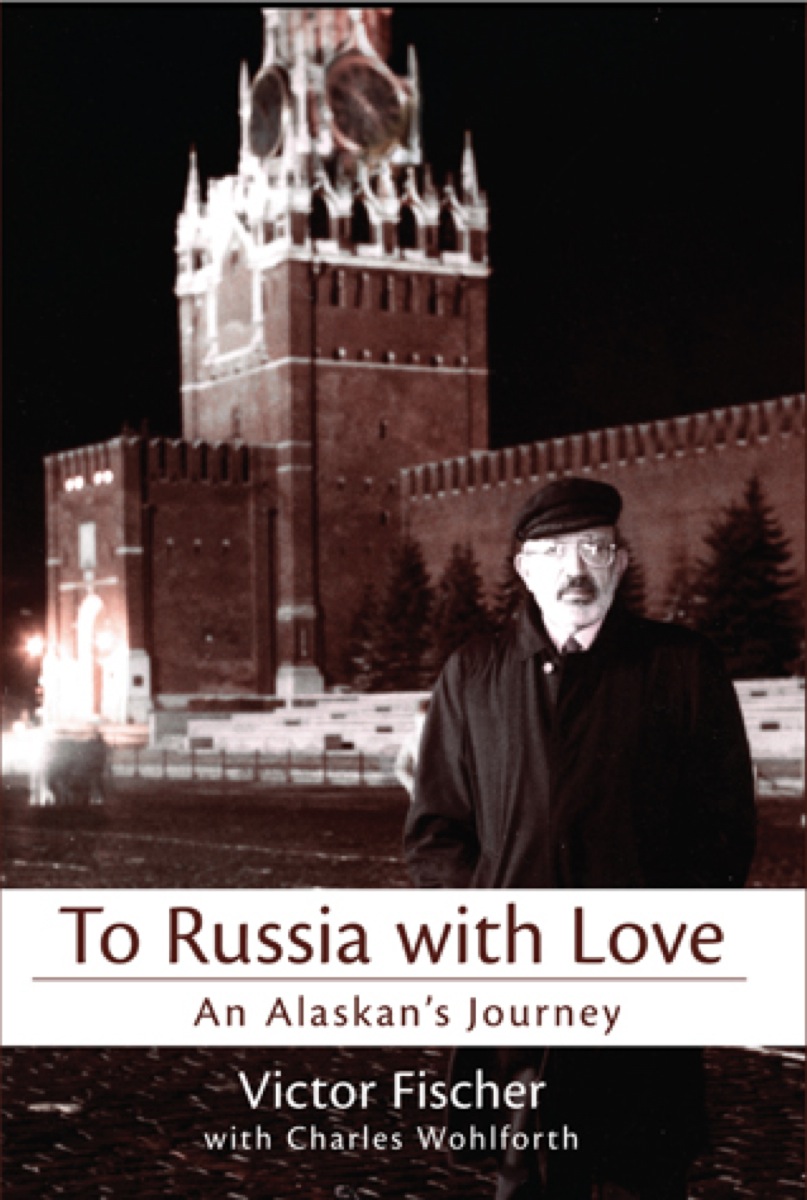Vic Fischer had me at hello. From the moment he stepped to the microphone at a classroom on the Kachemak Bay Campus, the 88-year-old Alaska icon awed his audience with unscripted stories of a life that took him from his boyhood in Nazi Germany and Stalinist Russia to a seat at the table in Fairbanks, where Alaska’s Constitution was written during the brutal winter of 1955-56.
Fischer’s memoir, “To Russia with Love: An Alaskan’s Journey,” describes his unlikely trajectory in detail. That night in November, when 70 or so of us gathered to hear him speak, I admired the optimism that sustained Fischer’s hour-long talk. I admired the humor that animated his responses to audience questions, ranging from “How do we make sure Alaska doesn’t become like New Jersey?” to “Do you have any good Yule Kilcher stories?”
And I admired Fischer’s energy as he signed copies of his book, chatting easily with people who shared some past connection with Fischer or his family.
Like lots of Alaskans, I thought I knew something about Vic Fischer: One of the 55 delegates to the state’s constitutional convention. A champion for statehood. Anchorage planner. Territorial legislator. Anchorage state senator, serving from 1981-1986 when oil money flowed. Director of the Anchorage-based think tank known today as the Institute for Social and Economic Research.
As his page-turning memoir makes clear, Fischer’s story is bigger than that. I know, because I’ve read it and I think you should, too. It’s a fascinating story that makes me proud of my 30-plus years in a state that rewards a can-do spirit. Read “To Russia with Love” to be reminded that we’re capable of making a difference, no matter where we end up in life.
As I witnessed in the audience and admired in his book, Fischer’s enthusiasm for Alaska is catching.
“In the Anchorage of the 1950s,” Fischer writes in the memoir, “Gloria (his wife at the time) and I, with our energetic, outgoing personalities, found ourselves in an ideal society, where leadership came as a natural reward for ideas and involvement.
“It was the world we had envisioned when we looked to the west to make our home. It was a largely classless social structure, resembling the dream of my parents and their socialist friends — but in a free rather than coerced form.”
That passage — and others like it — reminds me of the freedom we have as Alaskans, as Americans, and the real danger, trite as it may sound, of taking it all for granted and not using it to help others.
Fischer’s values permeate his epic story: respect for individual rights; abhorrence of a government’s power to kill its citizens; opposition to all kinds of discrimination; a dedication to those without power, particularly the poor; and a belief in fairness and equality.
It was during his service in the territorial legislature that he cosponsored a bill that abolished the death penalty in Alaska. Fischer today considers that act the high point of his service in the territorial legislature.
John Pugh, the University of Alaska Southeast chancellor who’s known Fischer for more than 30 years, says that Fischer likes to share his experiences and achievements but never to brag. “It’s for civic purposes,” Pugh says, “so you will look as his life and know you can do that too.”
Born in 1924 in Berlin, Fischer is the son of noted U.S. journalist and author Louis Fischer. His mother, Markoosha, was a Russian teacher, translator, social worker and writer. Fischer grew up speaking German and Russian and arrived as a teenager in New York City in 1939. He spoke no English. He, his mother and older brother, George, managed to escape Stalinist Russia only because First Lady Eleanor Roosevelt intervened, at the request of his father, who was in the United States at the time.
While the book makes clear Fischer has followed his dreams and passions throughout his full life, “To Russia with Love” offers no roadmap for the rest of us. Instead, Fischer leaves us with insight that’s bound to resonate with virtually all Alaskans, those born and reared here as well as new arrivals seeking a fresh start:
“The constant fact of my life is that I’ve kept hungrily diving into every opportunity to learn and do something new, to meet interesting people, or to go somewhere different.”
He’s the first to say he’s been lucky.
“While the Soviet system constricted the lives of my classmates, the freedom of America burst boundaries and made anything seem possible for me,” Fischer writes.
“As an American, I lived the miracle of freedom and opportunity. I felt the positive power of democracy in ordinary people’s hands. I saw how a single person can help shape the future.”
Lori Evans is the editor and publisher of the Homer News. She was a reporter and assistant editor for the Juneau Empire when Vic Fischer served in the state Senate.
‘To Russia With Love’ Good reminder to all Alaskans about how one person can choose to change things

Tags: Arctic Ocean


